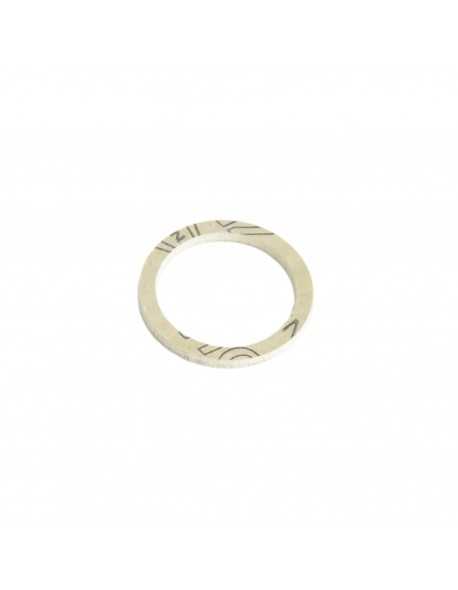



€0.85 tax excl.
 Security policy
Security policy
(edit with the Customer Reassurance module)
 Delivery policy
Delivery policy
(edit with the Customer Reassurance module)
 Return policy
Return policy
(edit with the Customer Reassurance module)
This gasket has been made from the fibre material AFM 34 in Germany. This gasket has a outer diameter of 26mm a inner of 21 and a thickness of 2mm. This gasket is used in a variety of components throughout a espresso machine. The most common place where this coffee machine gasket is used, is in the Faema E61, Faema E61 legend and E61 style brewing groups. Like with Vibiemme, Reneka, Expobar, Grimac, La Scala and Bezzera.
But a other common location for this gasket are water inlet valves for instance on Vibiemme espresso machines or with Fiorenzato and Grimac
If you are not sure if you have selected the correct product. Please send us a message and we might be able to help you
Data sheet
Well that answer is pretty simple, no it isn’t. The original valve works as following, when you turn the shaft inwards the valve pin will push a gasket holder. The steam can go out, close it again and no steam can go out. In the case of the modern E61 valves is that behind the gasket holder is a small stainless steel ball with a spring.
From the beginning of the Faema E61 brewing group are basically no differences between the parts installed inside the brewing group. Parts such as the valve gaskets, springs, valve assemblies and portafilters have all remained the same. The biggest change is the small cleaning hole on the front of the brewing group. With the earliest models this hole didn´t exist.
There are 5 types of boiler used on the Faema E61 espresso machine. The most well known is the double flanged model. You have on one side the heating element flange and on the other side the water level flange, both are out of production. These are held in place with aluminium boiler rings. For the single groups you have a boiler with a flange on one side.
The next model is a stainless steel boiler, with one flange. This type of boiler is less common then the copper boiler above. There is also a later model stainless steel, which doesn’t have a removable flange. Both these boilers have corrosion issues, this has to do because of the stainless steel.
The latest model is also a copper boiler, this boiler has a single heat exchanger(HX) in the middle. Most modern espresso machines have for each individual brewing group a individual HX.
Yes it is, but this depends on various factors. The first thing is experience, seen this is a manual operated espresso machine it requires a lot more attention from the barista then a solenoid operated model. There you need to stop the brewing process manually. If you don’t have the experience you probably can’t hold up with the tempo which is required at such a bar. Then I would advice to go for the Faema E61 Jubilee, this is the solenoid operated version of the Faema E61 Legend espresso machine.